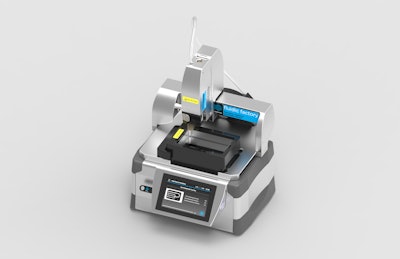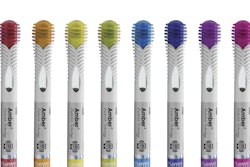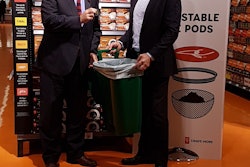
Dolomite unveiled its uniqueFluidic Factory, said to be the first commercially available 3D printer for sealed microfluidic devices that utilizes cyclic olefin copolymer (COC) from TOPAS Advanced Polymers.
Careful consideration was given to a range of materials for the printer and TOPAS COC offers unique properties and benefits over other polymers, making it ideal for microfluidics in biology and medical environments.
The Fluidic Factory is designed for ease of use, enabling rapid prototyping of fluidically sealed devices such as chips, sensor cartridges, fluid manifolds, valves, connectors and medical devices.
The 3D printer is designed for use with TOPAS 8007S-04, a standard injection-molding grade for high-performance medical and optical applications.
TOPAS COC provides clarity, purity, chemical resistance and UV transparency.
The first commercially available 3D printer for fluidically sealed devices offers rapid, easy, and reliable printing of microfluidic devices at an economical cost. The Fluidic Factory features intelligent software and hardware that ensures reliable sealing of fluidic paths, allowing the creation of precise channel geometries and various features not possible using etching, embossing, molding, or machining techniques.
Users can choose a design from the selection in the Fluidic Factory's Design Library, or create and print their own unique device using virtually any CAD software.
With this complete design flexibility, the Fluidic Factory is suitable for applicationsincluding organ-on-a-chip, point-of-care diagnostics, drug development, education, chemical synthesis and analytical and biomedical assays.
With 92% clarity and mold detail of TOPAS COC, well counts are maximized, flow channels can be incorporated and analyses are optimized.
Due to its ultra-high purity, TOPAS COC has lower leachables and extractables than competing materials, resulting in the most reliable and repeatable results. The inert nature of the material prevents interference with reactions and analyses.
Other important features include UV transparency of any plastic and low autofluorescence.
By utilizing TOPAS 8007S-04, manufacturers can start small-scale production with the Fluid Factory and seamlessly ramp up to commercial-scale injection molding without changing plastic materials.
The lightweight unit is compact and quiet and applicable for benchtop or desktop use.


























